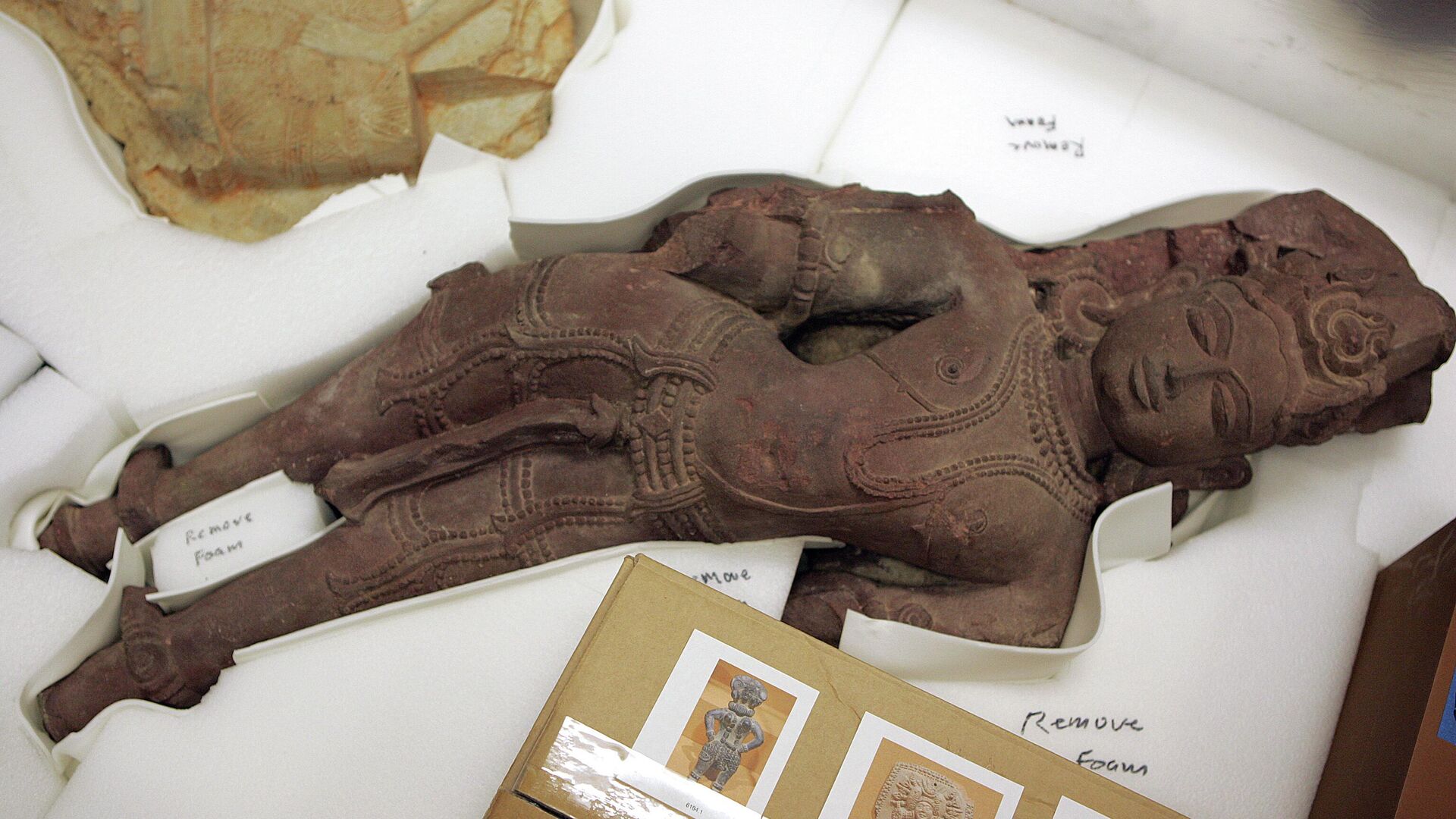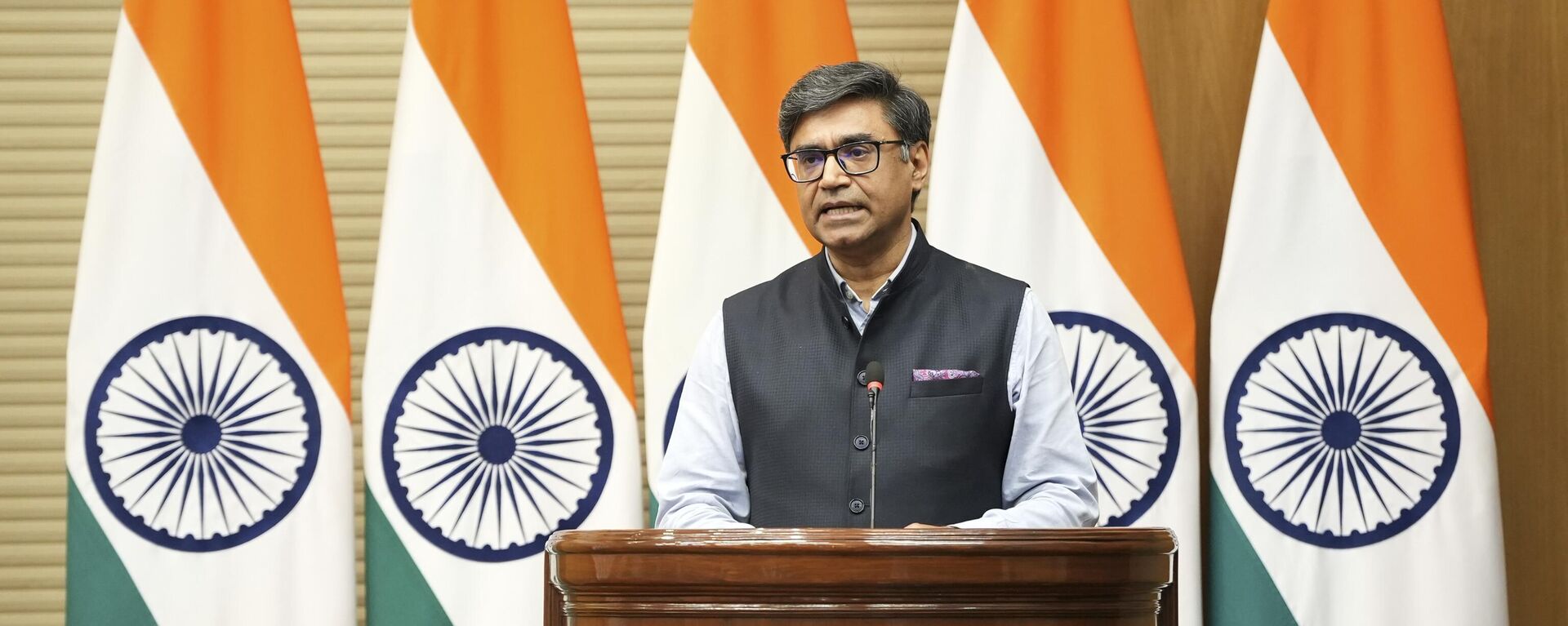https://sputniknews.in/20250803/loot-disguised-as-collections-how-indian-idols-ended-up-in-western-museums-9537151.html
Loot Disguised as Collections: How Indian Idols Ended Up in Western Museums
Loot Disguised as Collections: How Indian Idols Ended Up in Western Museums
Sputnik India
From the Kohinoor Diamond to ancient manuscripts and sacred temple idols, Britain’s museums are overflowing with relics of colonial plunder. S. Vijay Kumar... 03.08.2025, Sputnik India
2025-08-03T19:43+0530
2025-08-03T19:43+0530
2025-08-03T19:43+0530
sputnik opinion
nitish kumar
india
united kingdom (uk)
https://cdn1.img.sputniknews.in/img/07e7/07/12/3053163_0:160:3072:1888_1920x0_80_0_0_c7640ef8ad90045cb44bc0553b715035.jpg
Back in 1990, British journalist Peter Watson carried out a sting operation exposing the underbelly of the global art market. His investigation revealed that Sotheby’s, one of the world’s most prestigious auction houses, wasn’t just an innocent seller of artifacts—it was actively fueling the illicit trade. Sales managers and executives routinely traveled to India, meeting smugglers and handpicking idols from temples, all expenses quietly tucked into their travel budgets.For centuries, these sacred idols had stood undisturbed in their shrines, protected only by the hands of priests and the devotion of worshippers.“They didn’t need air-conditioning, climate control, or Western-style preservation,” Vijay Kumar added.In Western hands, these objects often became little more than collector’s trophies—fetishes for the wealthy elite. According to Kumar, one infamous case involved a set of “Lokhari Yogini” idols, stolen from an Indian temple and later found lying in the garden of a British farmhouse, covered in moss.
https://sputniknews.in/20250722/india-to-raise-issue-of-khalistani-extremism-with-uk-mea-9482789.html
india
united kingdom (uk)
Sputnik India
feedback.hindi@sputniknews.com
+74956456601
MIA „Rossiya Segodnya“
2025
Sputnik India
feedback.hindi@sputniknews.com
+74956456601
MIA „Rossiya Segodnya“
News
en_IN
Sputnik India
feedback.hindi@sputniknews.com
+74956456601
MIA „Rossiya Segodnya“
Sputnik India
feedback.hindi@sputniknews.com
+74956456601
MIA „Rossiya Segodnya“
nitish kumar, india, united kingdom (uk)
nitish kumar, india, united kingdom (uk)
Loot Disguised as Collections: How Indian Idols Ended Up in Western Museums
From the Kohinoor Diamond to ancient manuscripts and sacred temple idols, Britain’s museums are overflowing with relics of colonial plunder. S. Vijay Kumar, co-founder of the India Pride Project, explained to Sputnik India how this looting happened—and why the fight to reclaim these treasures is far from over.
Back in 1990, British journalist Peter Watson carried out a sting operation exposing the underbelly of the global art market. His investigation revealed that Sotheby’s, one of the world’s most prestigious auction houses, wasn’t just an innocent seller of artifacts—it was actively fueling the illicit trade.
Sales managers and executives routinely traveled to India, meeting smugglers and handpicking idols from temples, all expenses quietly tucked into their travel budgets.
"This was not some random theft happening. This was a targeted looting on an industrial scale," Kumar said.
For centuries, these sacred idols had stood undisturbed in their shrines, protected only by the hands of priests and the devotion of worshippers.
“They didn’t need air-conditioning, climate control, or Western-style preservation,” Vijay Kumar added.
"Crime has been committed, and it's been compounded by smuggling across borders. So, there is no number of justification that is available for you to hold these objects. Return it. History should come back to geography. And in that, I think is the right way to do it," Kumar said.
In Western hands, these objects often became little more than collector’s trophies—fetishes for the wealthy elite. According to Kumar, one infamous case involved a set of “Lokhari Yogini” idols, stolen from an Indian temple and later found lying in the garden of a British farmhouse, covered in moss.
"They all feel it's a game of attrition. If they drag it too long, then we would forget," Kumar concluded.


